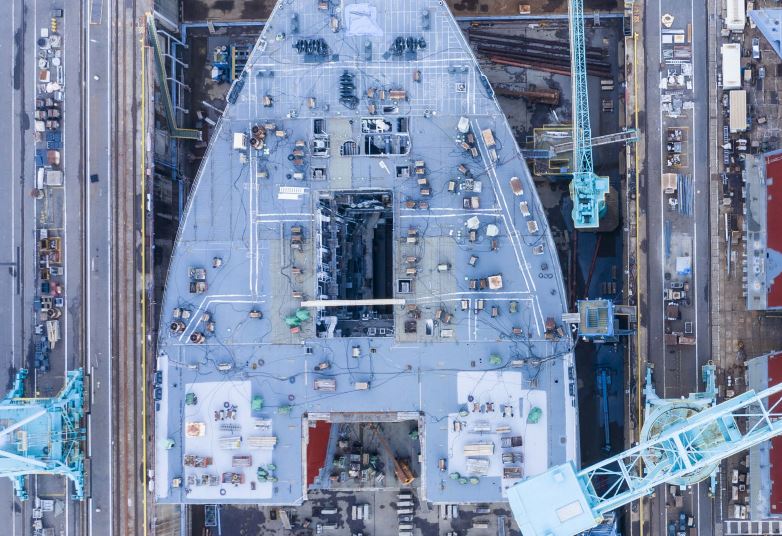A Shell study released on Tuesday exploring how the shipping industry is working to slash its emissions has confirmed LNG as one of the main transition fuels.
The report named “Decarbonizing Shipping: All Hands on Deck” is a joint research by Shell and Deloitte.
Shell says the report lays a “roadmap of solutions to help the industry meet the International Maritime Organization’s ambition to reduce carbon emissions”.
Deloitte interviewed 82 senior shipping executives from 22 countries across Europe, Asia and North America for this research project.
The report identifies lack of a global regulatory framework and limited customer demand to pay for lower emission solutions as one of key barriers towards decarbonization.
The report prioritises five out of twelve solutions to be implemented over the next two to three years that could speed up progress.
These include creating scale in customer demand for zero-emission shipping through charterer’s commitments but also leveling the playing field by aligning decarbonisation targets between the IMO and major local regulatory bodies.
Solutions also include boosting cross-sector R&D to develop a zero or low-emission fuel through joint research and development across shipping.
In addition, operational efficiency is identified as the foundation for the transition process, enabling reduced emissions from the current fleet.
This includes fuel and lubricant quality, digitalisation, and the use of data and smart navigation strategies.
“Too many alternatives and not one viable solution”
The shiping industry is currently exploring several alternative fuels to meet IMO’s targets.
These include hydrogen, ammonia, methanol and biofuels – but shipping leaders say that they “all have commercial and technical limitations”.
The report says that electric vessels may be an option for inland and short-sea routes but there is a problem with deep-sea shipping which accounts 85% of emissions.
There is currently no viable alternative fuel for deep-sea shipping that makes it possible to reach the IMO’s 2050 ambition, the report said.
However, there is a growing view that now is the time to act if the
industry is to meet the IMO’s ambition.
To reach it, many shipping leaders believe that the first net-zero ships will need to start entering the global fleet by around 2030, the report said.
LNG as transition fuel
The report also touched upon LNG as fuel that has become increasingly available over the years
“The prevailing view among interviewees is that LNG will have a role to play as a transition fuel in the next decade,” the report said.
As an executive at a global bulk ship owner and operator said: “It took
many years for LNG to become viable, it is the only alternative we have today, and it will get us under the 2030 IMO target.”
The report points out that LNG adoption is increasing, and some ship owners are in the process of taking on LNG-powered ships to reduce emissions.
On the other hand, some of the interviewees were more reserved about the role of LNG, pointing out that it will be insufficient to meet the 2050 ambition.
They also said that LNG carries the risk of methane emissions in the supply chain and it “may distract the industry from investments in zero-emission fuels,” the report said.

